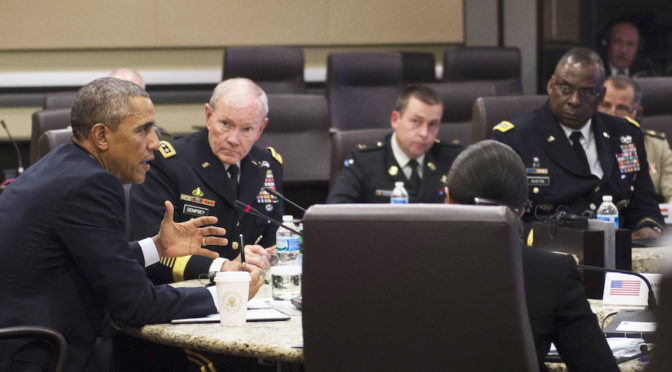Retired Brigadier General Kenneth Watkin’s new book, Fighting at the Legal Boundaries: Controlling the Use of Force in Contemporary Conflict, helps address some of the issues with the increasingly blurred line between international humanitarian law and human rights law. Professor Mitt Regan’s review addresses the trends that Watkin regards as posing novel challenges for states… Continue reading From Protecting Lives to Protecting States: Use of Force Across the Threat Continuum
Category: International Security
Countering the Prominence Effect: How US National Security Lawyers Can Fulfill Non-Prominent Humanitarian Objectives
Decision researchers describe a “prominence effect” that leads decision makers to choose an option with more defensible attributes when quantitative assessment of those options is difficult. Prominence is hypothesized as a factor in US policy decisions not to use military force to prevent or stop humanitarian crises. Prominence is also regarded as a behavioral failure… Continue reading Countering the Prominence Effect: How US National Security Lawyers Can Fulfill Non-Prominent Humanitarian Objectives
Sovereign Immunity in Cyber Space: Towards Defining a Cyber-Intrusion Exception to the Foreign Sovereign Immunities Act
In light of recent foreign cyber-assaults that have jeopardized personal privacy in the United States, it is time for individuals to explore opportunities for private suits against foreign governments. In the first attempt to do this, Doe v. Federal Democratic Republic of Ethiopia, the courts found that the Foreign Sovereign Immunities Act barred suit under… Continue reading Sovereign Immunity in Cyber Space: Towards Defining a Cyber-Intrusion Exception to the Foreign Sovereign Immunities Act



